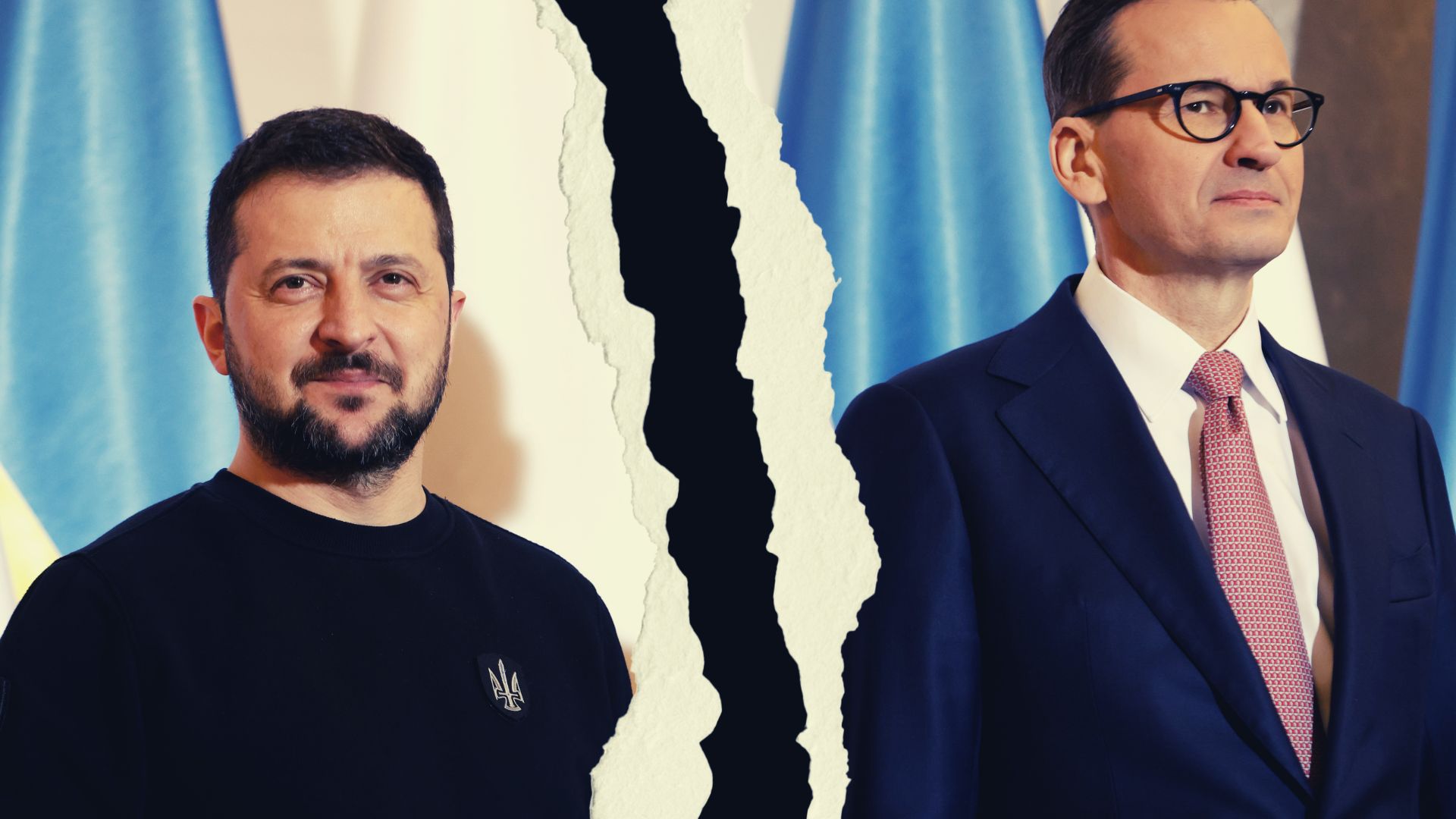Ever since the Russian invasion of Ukraine, Polish and Ukrainian relations have flourished — at least on the surface. However, below the surface, tensions have remained. Now, recent actions by Ukraine have led to a rapid series of events, including Poland announcing that it plans to withdraw military support from Ukraine, that threaten to have geopolitical consequences.
Ukraine’s decision to sue Poland in the World Trade Organization (WTO) over Poland’s grain embargo may have come as a shock to the Polish government, but Ukrainian President Volodymyr Zelensky’s remarks at the U.N., in which he alleged that countries with a grain embargo — a clear dig at Poland — were aiding Russia’s Putin. The comments may have been the final straw.
In response to the various disputes between Poland and Ukraine, Polish President Andrzej Duda even compared Ukraine to a “drowning person,” stating that “a drowning person is extremely dangerous because he can pull you to the depths… He can simply drown the rescuer.”
[pp id=93026]
Prime Minister Mateusz Morawiecki then delivered perhaps the most consequential news, telling Polsat News: “We are no longer transferring any weapons to Ukraine because now we will arm ourselves with the most modern weapons.”
Poland has been one of the biggest suppliers of military aid to Ukraine in the world, especially relative to its own GDP and military. With the news the country is pulling its support, it may mark a major turning point in NATO’s efforts to maintain unity on Ukraine. Even if Poland backs off from its plans, it may further point to a stark deterioration in how Poland views its interests in relation to Ukraine, but also how the Polish public views the conflict.
After all, with the Polish government turning on Ukraine, much of the Polish public may follow suit. In fact, as Hungarian newspaper Magyar Nemzet reports, some of the largest Polish newspapers are quickly filling up with negative comments about Ukraine as disputes grow between the two countries.
The Hungarian article acknowledged that the comments are not representative of an official survey, but described similar sentiments as being shared across the Polish media landscape.
Regarding Ukraine’s grain lawsuit with the WTO, different users commenting on Poland’s Gazeta Wyborcza wrote:
“This is disgusting, in light of how much we have already done for Ukraine. Scandalous!”
“That’s some gratitude…”
“Poland must IMMEDIATELY stop arms shipments and financial support for Ukrainian refugees living in Poland!”
“They don’t think logically in Ukraine anymore.”
“This is the end of my support for Ukraine, and it looks like there will be thousands more.”
In Poland’s largest tabloid, Fakt24, an article about Ukraine’s WTO lawsuit received nearly 500 comments and 212 “angry” reactions. Some of the comments included:
“Will the cities of Przemyśl and Rzeszów be attacked by Ukraine tomorrow? With our tanks and F-16s? They are already here. Ukrainians show their true colors. And this is just the beginning…”
“You hold out your little finger, and it wants your whole hand.”
That’s gratitude! It would be time to take care of our own country!”
In the business daily Rzeczpospolita, which is owned by a publisher recently bought out by billionaire oligarch George Soros, there were a number of passionate comments on Facebook to an article that Duda is refusing to meet Zelensky.
“It’s sad — how will Duda survive now that this beautiful love is over?”
“Zelensky stuck a knife in his back.”
The potential for a political and ideological split between Poland and Ukraine may come as some relief for Hungarian authorities, which have watched with dismay as their Polish allies have attacked Hungary over its stance on the Ukraine conflict. Now, with Zelensky suing Poland and attempting to embarrass the country at the United Nations, Poland’s ruling government, which often felt it was getting a raw deal from Ukraine, may be thinking it has little to gain from sidelining Hungary in favor of Ukraine.
Much depends on the outcome of the Oct. 15 elections in Poland. The government must save face in front of the Polish public after Zelensky’s government turned on Poland right before the country’s critical vote. In addition, Poland’s conservative government may be forced into an alliance with the right-wing Confederation party if it wishes to maintain power after the elections — a party known for its highly critical stance towards Poland’s unconditional support for Ukraine. This will put pressure on Law and Justice (PiS) to drop its traditional pro-Ukraine stance if such a coalition has any hope of forming, and right now, with Ukraine turning the screws, Poland’s ruling conservatives may have chosen an opportune time to make their move against Ukraine.






